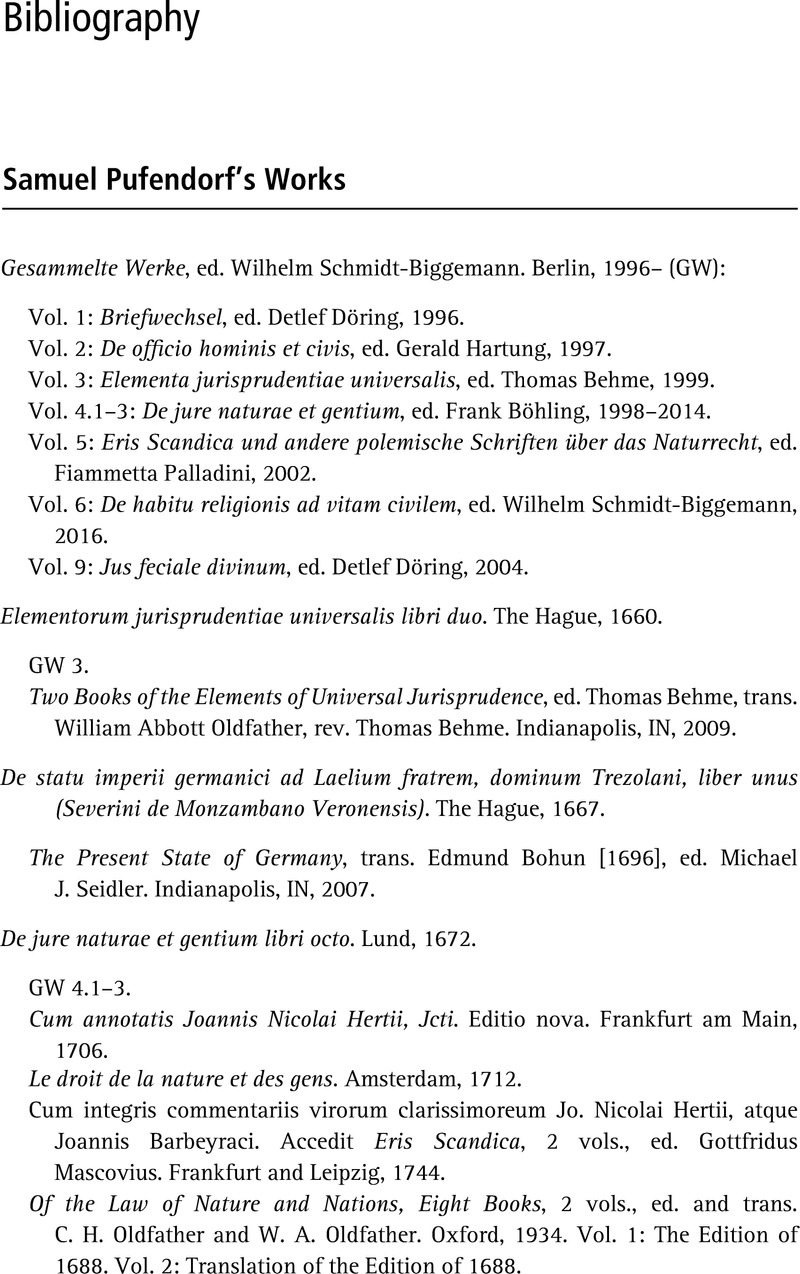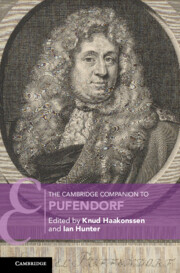Book contents
- The Cambridge Companion to Pufendorf
- Cambridge Companions to Law
- The Cambridge Companion to Pufendorf
- Copyright page
- Contents
- Contributors
- Abbreviations
- 1 Introduction: Life, Work and Historical Context
- 2 Politics and the Constitution of the Empire
- 3 Pufendorf’s Composite Method
- 4 The Metaphysics of Moral Entities
- 5 Human Nature, the State of Nature and Natural Law
- 6 Pacts, Language and Property
- 7 Family and Marriage
- 8 Pacts, Sovereignty and Forms of Government
- 9 The Civil Order: Law, Punishment and Social Value
- 10 The Law of Nations
- 11 Polemics and Controversies: Regarding the Eris Scandica
- 12 State, Church, Toleration, Reconciliation
- 13 Political Histories
- 14 Receptions, Contestations and Confusions
- Bibliography
- Index
- References
Bibliography
Published online by Cambridge University Press: 25 November 2022
- The Cambridge Companion to Pufendorf
- Cambridge Companions to Law
- The Cambridge Companion to Pufendorf
- Copyright page
- Contents
- Contributors
- Abbreviations
- 1 Introduction: Life, Work and Historical Context
- 2 Politics and the Constitution of the Empire
- 3 Pufendorf’s Composite Method
- 4 The Metaphysics of Moral Entities
- 5 Human Nature, the State of Nature and Natural Law
- 6 Pacts, Language and Property
- 7 Family and Marriage
- 8 Pacts, Sovereignty and Forms of Government
- 9 The Civil Order: Law, Punishment and Social Value
- 10 The Law of Nations
- 11 Polemics and Controversies: Regarding the Eris Scandica
- 12 State, Church, Toleration, Reconciliation
- 13 Political Histories
- 14 Receptions, Contestations and Confusions
- Bibliography
- Index
- References
Summary

- Type
- Chapter
- Information
- The Cambridge Companion to Pufendorf , pp. 386 - 413Publisher: Cambridge University PressPrint publication year: 2022



